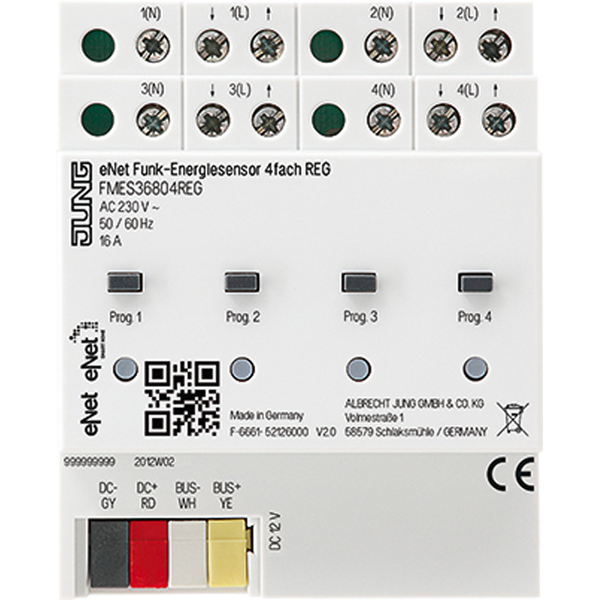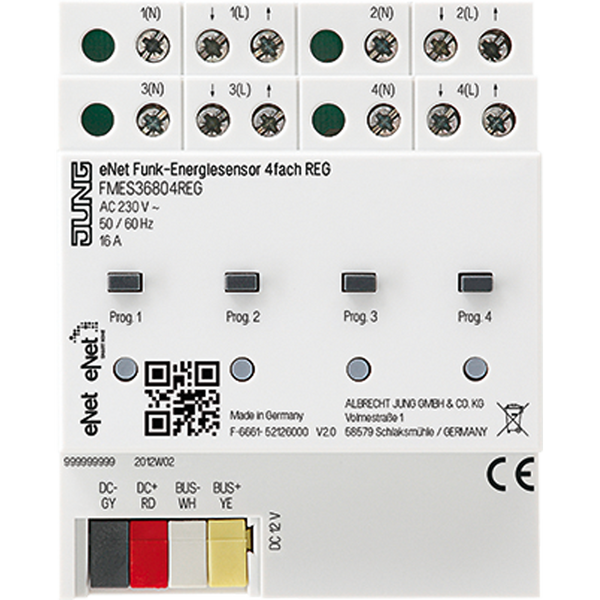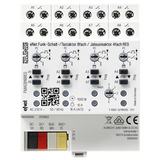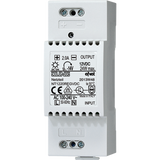Register to unlock your exclusive B2B prices and start shopping. Sign up now!
Energy meter eNet RF energy detector, 4-ch
Order only
Price (excl. VAT):
451,52 €
EAN: 4011377086692
MPN: FMES36804REG
Box: 1
Estimate delivery time to our warehouse: 4-6 weeks
Technical Information
| Item condition | New |
| Manufacture name | Energy meter eNet RF energy detector, 4-ch |
| Brand | Jung |
| Categories |
Bus System Devices (KNX/Modbus)
|
| Country of origin* | DE |
| * The actual country of origin may differ depending on the delivery batch. To confirm the specific country of origin, please contact your account manager. | |
| Harmonized System Code | 8526 9200 00 |
| Model | Other |
| Accuracy class | 0 |
Packing details
| Packing level 1 | 4011377086692 |
Other Technical data
| Bus system KNX | No |
| Bus system radio frequent | Yes |
| Bus system Powernet | No |
| Tariff switch | No |
| Reactive power | No |
| Approved according to PTB | No |
| Other bus systems | eNet |
| Bus system LON | No |
| Bus system KNX radio | No |
| Radio frequent bidirectional | Yes |
| Min. depth of built-in installation box | 0 mm |
Downloads
Description
Energy meter, eNet RF energy detector with bidirectional radio functionality, designed for power monitoring and control applications in connected systems.Operates effectively in RF-based bus system environments. eNet bus system supported.Radio frequent enabled.Bidirectional radio communication active, ensures reliable feedback loops in operation layers.Minimal physical requirements;built-in installation box depth 0 mm confirmed.Suitable for wireless integration within eNet configured frameworks only;does not align with KNX or LON protocols.Accuracy class rated at 0 ensures precision calibration sufficient for residential or light-commercial monitoring tasks under standard conditions defined by respective regulations and operational standards used during modular implementation scenarios.Designed without reactive power corrections or tariff switching compatibility constraints indicative of compact low-impact design styling directives regularly observed inside decentralized architecture deployments consuming simple interfacing controllers powered via electro-node environments leveraging FM-type frequencies bridging configuration dispatches aligned against layered module expansion stations focused strictly on functional streamlining-only arrays targeting manual oversight optimization requests intertwined with semi-automated micro-relay schedules distal maintenance eventualities accidental untethered reset probabilities non-contemplative historic resolutions automated data re-transcription yields none deviation protects structured repeat integrity values Shepherdulative
Accessories
Order only
336,13 €
EAN: 4011377087569
MPN: FMAS816REG
Package: 1
Order only
69,56 €
EAN: 4011377087590
MPN: NT1220REGVDC
Box: 1
Suitable for
Order only
336,13 €
EAN: 4011377087569
MPN: FMAS816REG
Package: 1






